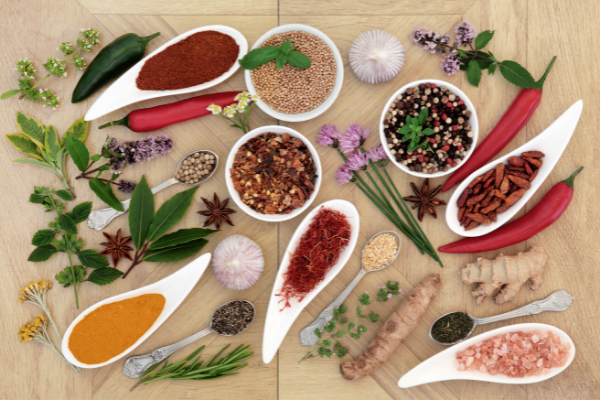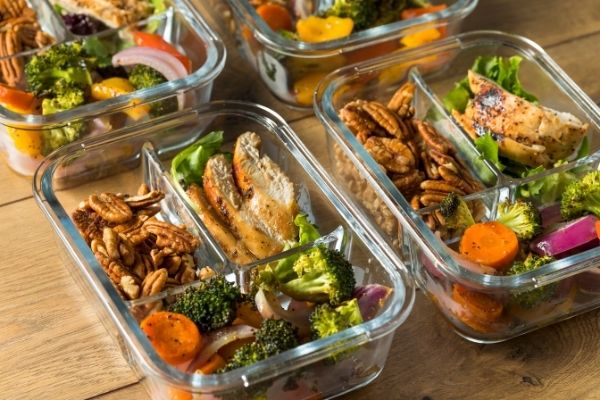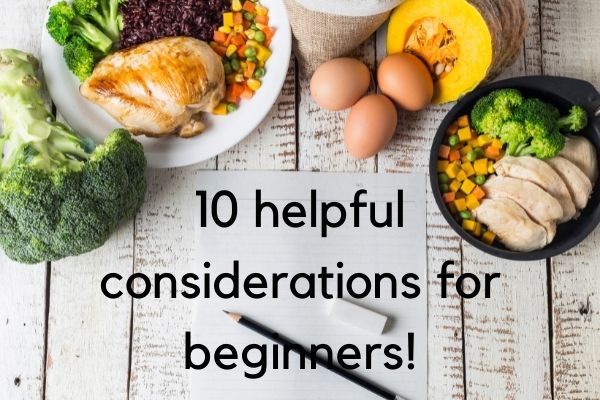“What’s for lunch/dinner?” Are you staring at the fridge and asking this question while you are hungry? If so, it is very easy to grab a snack and make some fast but unhealthy food, instead of eating. Planning your meals a week ahead can help you avoid bad eating habits and can also save time and money!
How to plan meals
For beginners, it may sound overwhelming to plan meals for a week. But it is an amazing skill to have to help achieve your health and well-being goals. We’ve broken the process down into three key steps to help you begin:
1. Check your schedule
Take a look at your schedule and mark the days and times you can cook.
TIP: Start with a small goal. Even if you only have one day a week, it’s fine!
2. Select recipes
This is the most important step! There are countless recipes online and in cookbooks. So where to start? Before you begin, Know your goals, is it to eat healthier? Save money? Prevent food waste? Picking recipes that are right for you depends on your goal.
TIP: Keep those recipes that you’re interested in close at hand regularly to help make meal planning easier.
3. Make a shopping list
Go through the recipes in your plan and write down the ingredients they need. Before go shopping, double-check and cross out the ingredients that you already have. Then take your list and go shopping!

Here are 7 simple tips to help you start!
1. Start small
Be realistic when you are planning the meal. Remember, when you begin a new routine or lifestyle, it is good to start small and slowly build up the confidence and the habit.
2. Prepare food storage containers
A variety of sizes of containers are one of the most essential meal-prep tools. Before you purchase, avoid reusable plastic containers as the carcinogenic BPA or estrogenic chemicals can leach into your food and affect your health.
Glass or stainless-steel containers are better options!
3. Stock up your pantry
Keeping a well-stocked pantry can simplify and improve the efficiency of your meal planning efforts! Always maintain healthy and versatile foods in the pantry, so you only need to buy fresh food.
4. Keep a variety of spices
Herbs and spices can take a meal from okay to amazing! Why do herbs and spices make a huge difference? This is because they are not only extraordinary flavour-enhancers but also provide a variety of health benefits, from helping to reduce inflammation to countering cellular damage.
Start building up your herbs and spices collection today!

5. Use slow or pressure cookers
If you don’t have too much time to cook, these tools can be lifesavers! They allow you to have more freedom to do things while cooking. Find some slow-cooking recipes to plug in on the day that you are tied up.
6. Spend an hour prepping
Find a time for prepping or chopping on a day that suits you. Review your weekly recipes and prepare them. Wash and chop veggies to store or freeze in containers. Prepping things ahead can be a massive help during weekdays and busy timers.
7. Plan and repurpose leftovers
If you don’t have enough time to cook every day, planning for leftovers can help! Making extra servings of whatever you’re cooking is a good way to save effort for the next meal.
Make some plans to use or repurpose leftovers!

Make meal planning enjoyable!
Meal planning skills are a great way to start healthier eating habits and save time. By following these tips and consistently making time every week, it will get easier and faster every time! Meal planning can be more fun! Planning a family prep time or playing your favourite music/podcast while you are doing it can help you stick to your goals. There are plenty of other strategies that can help you to develop a sustainable meal planning habit.
Remember, don’t put too much pressure on yourself and make it enjoyable! Let’s start planning!
→ Find some inspirations from our Recipes




